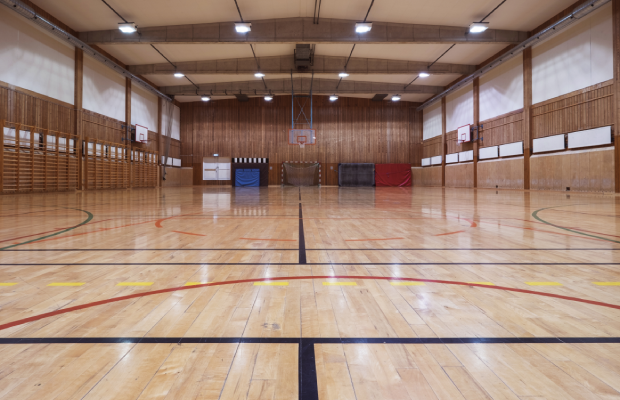GCSE Math help - lower/upper bounds
Question:
A car travels a distance of 150 miles in 2.5 hours.
a) taking these as exact values, work out its average speed in mph.
In fact, the distance is correct to the nearest 10 miles and the time is correct to the nearest 0.1 hour.
b) work out a lower bound for the speed of the car.
c) work out an upper bound for the speed of the car.
//i've worked out that a) is 60mph, using the speed/distance/time formula. I'm stuck with the other two questions though. Help? :/
A car travels a distance of 150 miles in 2.5 hours.
a) taking these as exact values, work out its average speed in mph.
In fact, the distance is correct to the nearest 10 miles and the time is correct to the nearest 0.1 hour.
b) work out a lower bound for the speed of the car.
c) work out an upper bound for the speed of the car.
//i've worked out that a) is 60mph, using the speed/distance/time formula. I'm stuck with the other two questions though. Help? :/
Original post by user20031516
Question:
A car travels a distance of 150 miles in 2.5 hours.
a) taking these as exact values, work out its average speed in mph.
In fact, the distance is correct to the nearest 10 miles and the time is correct to the nearest 0.1 hour.
b) work out a lower bound for the speed of the car.
c) work out an upper bound for the speed of the car.
//i've worked out that a) is 60mph, using the speed/distance/time formula. I'm stuck with the other two questions though. Help? :/
A car travels a distance of 150 miles in 2.5 hours.
a) taking these as exact values, work out its average speed in mph.
In fact, the distance is correct to the nearest 10 miles and the time is correct to the nearest 0.1 hour.
b) work out a lower bound for the speed of the car.
c) work out an upper bound for the speed of the car.
//i've worked out that a) is 60mph, using the speed/distance/time formula. I'm stuck with the other two questions though. Help? :/
For b) the speed = distance / time. Given that both distance and time are rounded, how would you choose these two values to make the speed as small as possible?
Original post by mqb2766
For b) the speed = distance / time. Given that both distance and time are rounded, how would you choose these two values to make the speed as small as possible?
I dont know tbh
Original post by user20031516
I dont know tbh
speed = 150 / 2.5
Both the numerator and denominator have been rounded a bit.
* What would happen to the speed if the numerator increased or decreased a bit?
* What would happen to the speed if the denominator increased or decreased a bit?
* How do you choose both to make the speed as small as possible?
Original post by mqb2766
speed = 150 / 2.5
Both the numerator and denominator have been rounded a bit.
* What would happen to the speed if the numerator increased or decreased a bit?
* What would happen to the speed if the denominator increased or decreased a bit?
* How do you choose both to make the speed as small as possible?
Both the numerator and denominator have been rounded a bit.
* What would happen to the speed if the numerator increased or decreased a bit?
* What would happen to the speed if the denominator increased or decreased a bit?
* How do you choose both to make the speed as small as possible?
the speed would be wrong maybe i'm not sure
would i do 149.5 / 2.0 instead to make the speed as small as possible?
Original post by user20031516
the speed would be wrong maybe i'm not sure
would i do 149.5 / 2.0 instead to make the speed as small as possible?
would i do 149.5 / 2.0 instead to make the speed as small as possible?
You've not got the rounding or the denominator right.
To make the speed as small as possible what do you do to the denominator? Which is the smallest 1/2, 1/3, or 1/4?
For the rounding
"In fact, the distance is correct to the nearest 10 miles and the time is correct to the nearest 0.1 hour."
What would be the largest & smallest distance to give a rounded value of 150?
What would be the largest & smallest time to give a rounded value or 2.5?
Which combination would give the smallest speed?
See
https://www.bbc.com/bitesize/guides/z8y39qt/revision/6
Original post by mqb2766
You've not got the rounding or the denominator right.
To make the speed as small as possible what do you do to the denominator? Which is the smallest 1/2, 1/3, or 1/4?
For the rounding
"In fact, the distance is correct to the nearest 10 miles and the time is correct to the nearest 0.1 hour."
What would be the largest & smallest distance to give a rounded value of 150?
What would be the largest & smallest time to give a rounded value or 2.5?
Which combination would give the smallest speed?
See
https://www.bbc.com/bitesize/guides/z8y39qt/revision/6
To make the speed as small as possible what do you do to the denominator? Which is the smallest 1/2, 1/3, or 1/4?
For the rounding
"In fact, the distance is correct to the nearest 10 miles and the time is correct to the nearest 0.1 hour."
What would be the largest & smallest distance to give a rounded value of 150?
What would be the largest & smallest time to give a rounded value or 2.5?
Which combination would give the smallest speed?
See
https://www.bbc.com/bitesize/guides/z8y39qt/revision/6
1/4?
that link is helpful thank you, i still can't wrap my head around this though.
would the largest & smallest distance to give a rounded value of 150 be 145?
and would largest & smallest time to give a rounded value of 2.5 be 2.3?
i'm not sure
sorry i'm just not getting it, not your fault though
Original post by user20031516
1/4?
that link is helpful thank you, i still can't wrap my head around this though.
would the largest & smallest distance to give a rounded value of 150 be 145?
and would largest & smallest time to give a rounded value of 2.5 be 2.3?
i'm not sure
sorry i'm just not getting it, not your fault though
that link is helpful thank you, i still can't wrap my head around this though.
would the largest & smallest distance to give a rounded value of 150 be 145?
and would largest & smallest time to give a rounded value of 2.5 be 2.3?
i'm not sure
sorry i'm just not getting it, not your fault though
You're getting there. The smallest distance to the nearest 10 miles is 145.
For the denominator (time), do you want to make it large or small to make the speed small? Just think about it practically. You travel the same distance, which speed is the slowest, if you take a long time or a short time?
The rounding is also not correct, What are the min and max values
* if you round to the nearest 10 (you do it correctly for distance).
* if you round to the nearest 1
* if you round to the nearest 0.1
TBH, its a one liner and I could give you the answer, but that won't necessarily help on a similar questoin.
Original post by user20031516
Question:
A car travels a distance of 150 miles in 2.5 hours.
a) taking these as exact values, work out its average speed in mph.
In fact, the distance is correct to the nearest 10 miles and the time is correct to the nearest 0.1 hour.
b) work out a lower bound for the speed of the car.
c) work out an upper bound for the speed of the car.
//i've worked out that a) is 60mph, using the speed/distance/time formula. I'm stuck with the other two questions though. Help? :/
A car travels a distance of 150 miles in 2.5 hours.
a) taking these as exact values, work out its average speed in mph.
In fact, the distance is correct to the nearest 10 miles and the time is correct to the nearest 0.1 hour.
b) work out a lower bound for the speed of the car.
c) work out an upper bound for the speed of the car.
//i've worked out that a) is 60mph, using the speed/distance/time formula. I'm stuck with the other two questions though. Help? :/
a) 150 miles / 2.5 hours = 60 mph.
b) Lower bound in division = Lower Bound / Upper Bound = 145 miles / 2.55 hours = 56.863 mph.
c) Upper bound in division = Upper Bound / Lower Bound = 155 miles / 2.45 hours = 63.265 mph.
Hint: If something is rounded to the nearest x, divide x by 2 and if you have to figure out the upper bound of this figure, add x/2 to your number. If you have to figure out the lower bound, take away x/2 from your number. This should give you the appropriate bounds.
Original post by user20031516
Question:
A car travels a distance of 150 miles in 2.5 hours.
a) taking these as exact values, work out its average speed in mph.
In fact, the distance is correct to the nearest 10 miles and the time is correct to the nearest 0.1 hour.
b) work out a lower bound for the speed of the car.
c) work out an upper bound for the speed of the car.
//i've worked out that a) is 60mph, using the speed/distance/time formula. I'm stuck with the other two questions though. Help? :/
A car travels a distance of 150 miles in 2.5 hours.
a) taking these as exact values, work out its average speed in mph.
In fact, the distance is correct to the nearest 10 miles and the time is correct to the nearest 0.1 hour.
b) work out a lower bound for the speed of the car.
c) work out an upper bound for the speed of the car.
//i've worked out that a) is 60mph, using the speed/distance/time formula. I'm stuck with the other two questions though. Help? :/
another one who misses the s off of maths on a British forum. despicable!
Quick Reply
Related discussions
- Upper and lower bounds degrees °
- Parametric Volumes 1
- MATHS Mathswatch homework help
- Suitable degree of accuracy
- parametric question
- gyg: revision time, lads 💪✨
- Limit of accuracy
- Mathswatch Bounds / Measures of Accuracy
- Maths question
- The Hard Grade 9 Questions Thread 2019
- What grades do university of Toronto typically look for?
- how to improve mathematical skills and knowledge?
- 2022 Edexcel Maths GCSE (Higher) Checklist
- Which of these statements about orders of growth are true?
- A-level Maths, Integration, Finding area between curves & Lines.
- U of T conditional offer help!
- New edexcel maths gcse mock exams were so hard!
- about concord college six form entrance test
- Spirometry.. how can you have lower airway obstruction without lower?
- Numerical solution
Latest
Last reply 4 minutes ago
JK Rowling in ‘arrest me’ challenge over hate crime lawLast reply 5 minutes ago
Official University of Edinburgh Applicant Thread for 2024Last reply 22 minutes ago
Woodhouse College applicants 2024Trending
Last reply 1 week ago
Edexcel A Level Mathematics Paper 2 unofficial mark scheme correct me if wrongMaths
71
Trending
Last reply 1 week ago
Edexcel A Level Mathematics Paper 2 unofficial mark scheme correct me if wrongMaths
71




